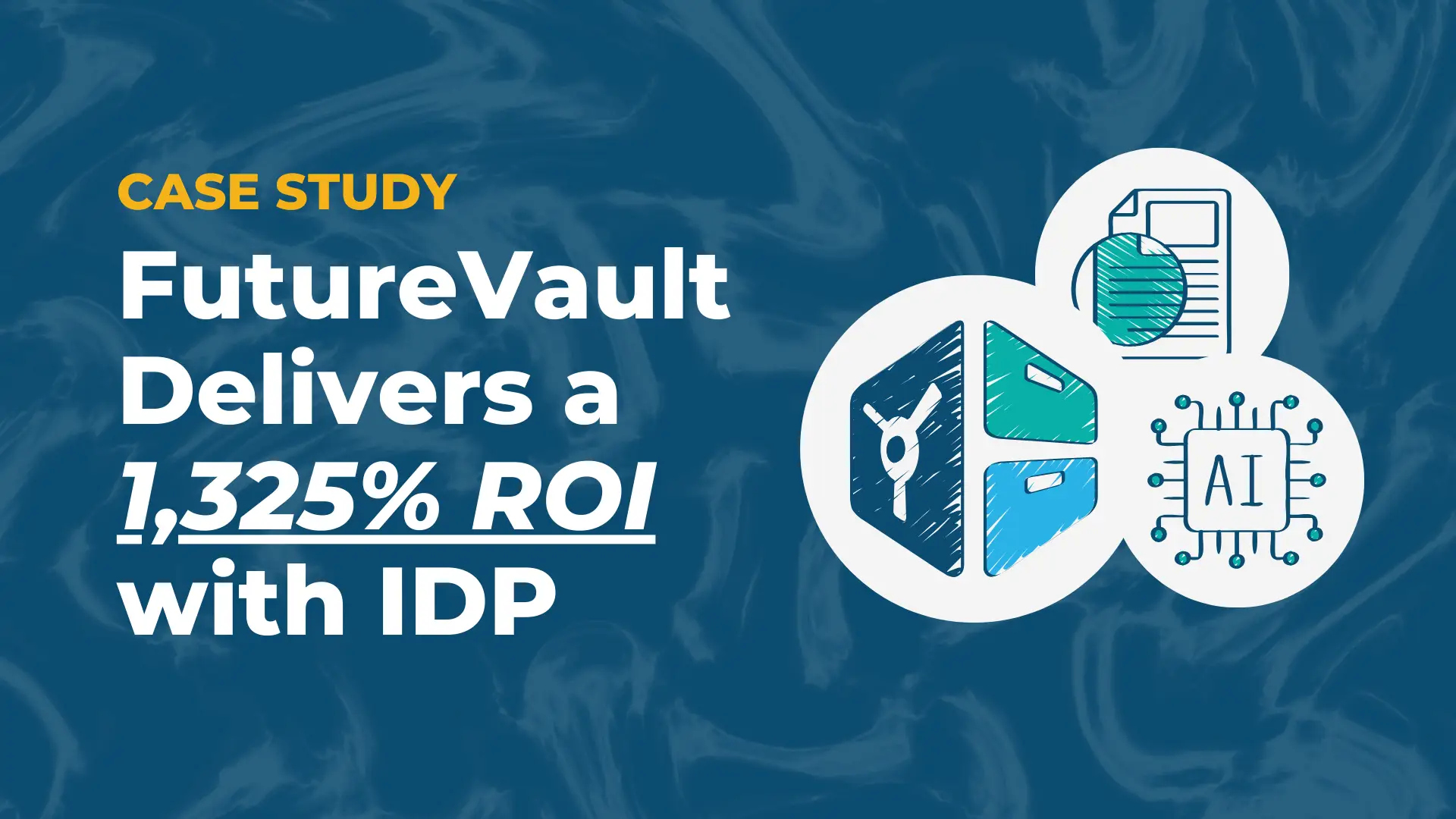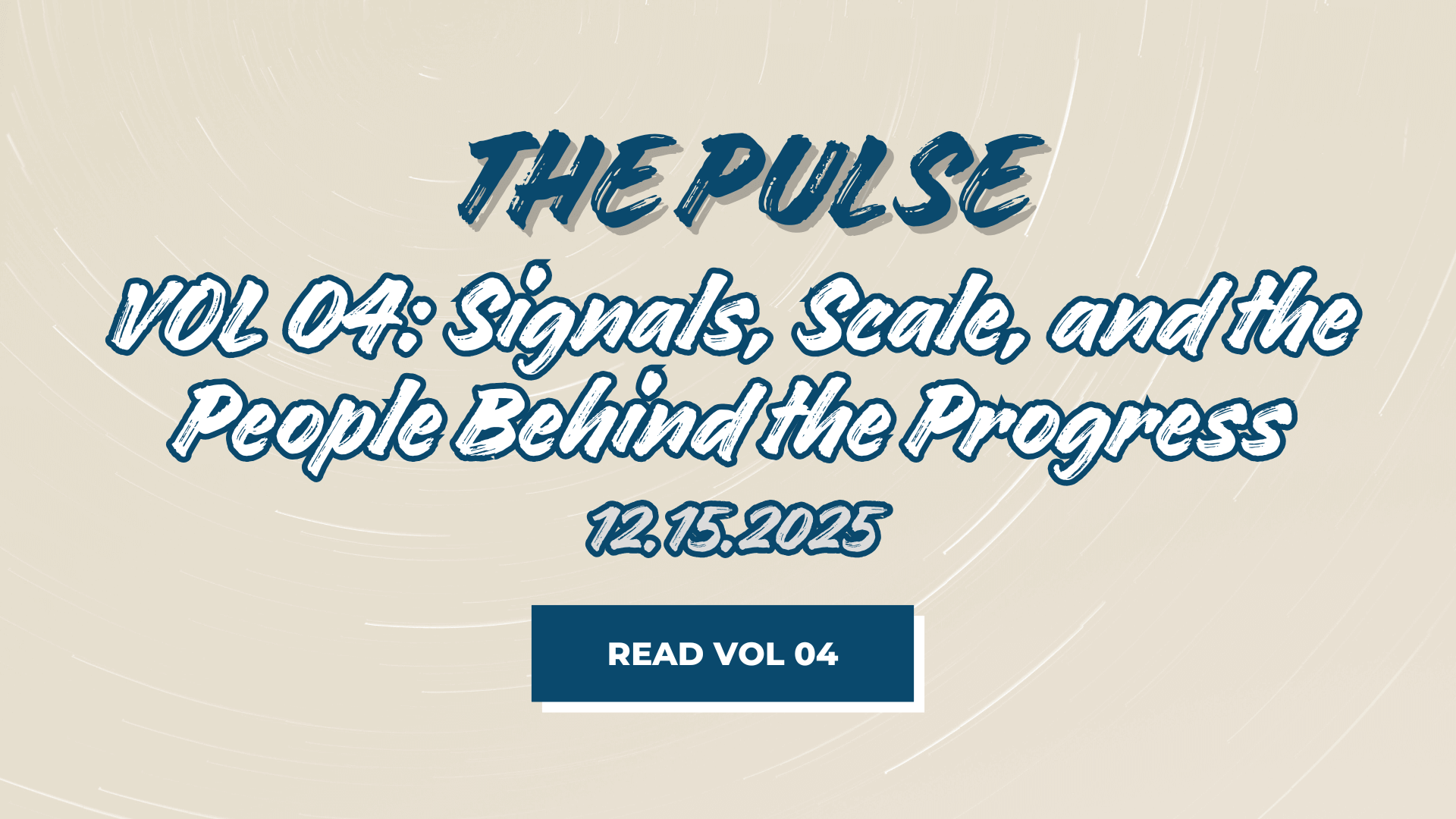Digital Vaults have become a fundamental component in the modern technology stack within financial services and wealth management, moving away from a “nice-to-have” to an absolute must-have piece of technology to safeguard, manage, and handle sensitive enterprise, advisor, and client documentation.
When the right Digital Vault technology is implemented, these platforms can materially transform the way firms organize, manage, store, and deliver client-facing documents; onboard and retain clients; attract talent and elite advisors; manage compliance and audit readiness; and provide advisors with a competitive edge to materially improve the engagement and relationship they have with new and existing clients—and their families.
This guide provides an overview of all things Digital Vault technology and importantly, answers common questions including, “What is a Digital Vault?”, “Who are Digital Vaults for?”, and even “What are the benefits of using a Digital Vault?”.
Table of Contents
1. What is a Digital Vault? An Introduction to Digital Vaults
2. How Does a Digital Vault Work?
3. Are Digital Vaults Safe and Secure?
4. Why Digital Vaults Matter in Financial Services
5. Who are Digital Vaults for?
6. What Types of Documents Should Go in a Digital Vault?
7. Not All Digital Vaults are Created Equal
8. Conclusion
9. FAQs
What is a Digital Vault? An Introduction to Digital Vaults
A Digital Vault is an online security vault; it is the virtual equivalent of a safety deposit box to store and safeguard critical documents, data, and information. Much like a physical vault is used to store and protect valuable physical assets, such as money, banknotes and certificates, jewelry, physical documentation, and more, a Digital Vault is used to safeguard important and valuable digital assets; namely files and documentation.
For individuals — those who are often clients of financial services and wealth management firms — Digital Vaults provide an additional level of confidence in knowing that personal data and information is kept safe and secure.
Common documents and items included within a Digital Vault are financial statements (those delivered from institutions to clients), banking and account information, financial and estate plans including Wills and Trusts, legal information, insurance policies, real estate and mortgage-related documentation, personal identification such as Driver’s Licenses and Passports, and more.
While Digital Vault technology provides operational, administrative, and compliance benefits at the enterprise and front-office level, they serve to provide value for clients via managing their personal life’s content securely and efficiently, at their fingertips.
“Digital Vault platforms are becoming the next iteration and the future of secure document management by providing firms (and their advisors) accountability, efficiency, structure, compliance, and protection—all areas that enable organizations to scale document management practices across the many levels of their organization, and most importantly, to extend and enhance the value proposition delivered to their clients.”
Kristian Borghesan, CMO at FutureVault
How Does a Digital Vault Work?
A Digital Vault keeps information and documents organized in one centralized location, ultimately serving as the secure single source of truth, and making information and documents accessible anytime, anywhere.
Digital Vault platforms are much more than simple document storage repositories; individuals, financial advisors, and enterprise administrators can share files with different parties from one central location and provision different roles and levels of access when and where needed.
More advanced and leading Digital Vault solutions like FutureVault are known for robust document exchange functionality, scalable structuring of folders and files, advanced permissions, along with automation capabilities to deliver and upload important information and documents from a variety of sources (custodians, planning software, CRMs, etc).
Are Digital Vaults Safe and Secure?
Digital Vaults have grown in significance and popularity, especially within financial services, largely due to their modern and best-in-class security measures along with top-tiered Vault solutions meeting regulatory requirements for data privacy to safeguard enterprise and client documentation.
A Digital Vault is much more than a secure storage solution for your important documents; it is a robust platform for secure document handling to facilitate document exchanges taking place between multiple parties, in one centralized environment. Digital Vaults provide a safe environment for storing critical documents such as agreements and account information, investment statements, estate plans, and personal records.
Most Digital Vault solutions reside in the cloud and leverage all the benefits of data availability, redundancy, and low storage costs. More importantly though, Digital Vault platforms, and notably the FutureVault platform, leverage institutional-grade security with modern encryption (in transit and at-rest) to confidently protect those documents, data, and digital assets within a secure environment.
If your institution and firm is assessing a Digital Vault solution, look for those that actively maintain certifications such as SOC 2 Type II compliance, demonstrating their commitment to preserving and protecting enterprise and client documentation.
Why Digital Vaults Matter in Financial Services
As the amount of sensitive information, data, and documentation that institutions, firms, advisors, and/or clients deal with daily continues to multiply along with the growing reliance on secure document handling processes (and tools) for both operational and compliance purposes, the role of a Digital Vault is quickly becoming one of the most important pieces of technology for modern firms, institutions, professionals, and their clients.
Digital Vaults have become an unequivocal must-have technology, equipping institutions, firms, and professionals with structure, security, and efficiency to streamline and automate document-driven processes and deliver tremendous value to clients.
Digital Vaults are ‘central’ to all things data, information, and documentation that span across the enterprise, advisor, and client relations. In many cases, Digital Vaults have proven to be the linchpin for advisors and firms looking to navigate the intricacies of estate, legacy, succession, and wealth transfer planning.
Notably, Digital Vaults solve many of the legacy and traditional document management and document handling challenges by providing robust functionality that goes well beyond simple document storage and management.
1. Digital Vaults Provide Structural Brilliance
Digital Vaults provide structure and organization that allows institutions and firms to handle large volumes of data and documents that span across the different levels and stakeholders of the organization, while importantly provision secure access to client documentation when and where needed, at scale.
Solutions like FutureVault make it easy to standardize folder structures and file management templates for the enterprise, for the front office, while also allowing for different folder and file structure templates to be created and managed for different client segments (estate planning client, insurance-only client, high net worth clients, ultra-high net worth clients, etc.).
FutureVault’s multi-tiered Digital Vault is purpose-built for all levels of an organization and for every stakeholder – this allows for secure access to information, where delegated and provisioned, by home office and back-office teams, by advisors and front office teams, and by clients and family members.
2. Digital Vaults Enhance Security and Compliance
Information security and compliance are table stakes for top-tiered Digital Vault solutions. By employing cybersecurity best practices, institutional-grade security, advanced and modern encryption protocols (in transit and at-rest), and multi-factor authentication, Digital Vault solutions like FutureVault help ensure that sensitive data remains safeguarded from unauthorized access.
With respect to regulation, it’s important that the Digital Vault your institution and firm moves forward with adheres to and meets data residency, data redundancy, disaster recovery, and document retention requirements set forth by regulatory bodies, including FINRA and the SEC (such as SEC Rule 17a4).
3. Digital Vaults Lead to Operational Efficiency Gains
Paperwork and document handling are a necessary evil for financial services and wealth management firms. Documents are tightly tied to many internal and external processes that often involve accessing, requesting, sharing, and managing a wide array of different types of information and documents.
Digital Vault solutions provide efficiency by improving document-driven workflow, ultimately freeing up professional time and capacity, saving money, and building trust with clients.
Common use cases include automating the delivery of statements to advisors and clients; eliminating the back-and-forth manual exchanges and non-compliant file-sharing methods; standardizing the document collection process; streamlining onboarding processes, providing trusted collaborators and third parties with secure access to key portions within vaults to streamline workflow.
4. Digital Vaults Elevate Advisor and Client Experiences
The digital experience for Advisors and clients is more important now than ever and having the right set of digital tools in place is becoming an expectation amongst all cohorts. Digital Vault solutions like FutureVault can help provide additional value in this area, especially when it comes to moving away from legacy systems and paper-based workflow.
Digital vault technology will become the centerpiece of financial services and information management. Digital Vaults are poised to become one of the single most important pieces of the modern tech stack within financial services and wealth management. In essence, the vault construct ‘connects the disconnected’ within organizations leading to massive efficiency gains and cost savings while at the same time introducing a new value proposition paradigm for enterprises, advisors, and their clients.
G Scott Paterson
Founder & Executive Chairman (Quoted July 2018)
Who are Digital Vaults for?
Types of Firms Using Digital Vaults
While Digital Vault technology is and will become industry-agnostic, we are witnessing massive interest, adoption, and use cases within the financial services and wealth management industries.
With the number of document-drive processes, both internal and external, that take place daily, along with how connected documents are to client servicing, it should come as no surprise that there is a large affinity for Digital Vaults within these industries.
Below are the types of organizations and firms actively using or beginning to use Digital Vault technology across the back office, front office, and with clients.
- Independent Broker-Dealers
- Independent Advisory Firms, Money Managers, and Registered Investment Advisors (RIAs)
- Single and Multi-Family Offices
- Insurance Distributors
- Accounting Firms
- Credit Unions
- Banks
The Key Stakeholders Using Digital Vaults
Traditional and legacy-based document management tools often focus on providing value to one function or ‘level’ of an organization; usually, that ends up being either a back-office and compliance focus or on the advisor. This results in a very disconnected document handling workflow across front, middle, and back-office teams along with key stakeholders involved in the process chain.
Advanced and leading Digital Vault solutions like FutureVault offer an innovative approach to managing documents and the processes that they’re involved with through a multi-tiered solution where all constituents involved — front, middle, and back-office teams, along with clients and households – benefit and gain tremendous value by having access to the critical information, data, and documentation that is relevant to them and their role.
- Home office and back-office teams: View and manage Advisors and advisory teams, along with the document exchanges that take place between advisors and their clients, in addition to the Head Office being able to deliver documents securely (and in many cases with automation) to both advisors and clients. This provides compliance officers with an extra degree of confidence knowing compliant document handling activities are taking place.
- For front office teams and financial advisors: Having secure administrative access makes it easy to manage clients while securely exchanging, collecting, and managing critical client files and information within one centralized location. This reduces and eliminates significant time spent on manual document-related tasks and compliance risks, while streamlining document workflows to efficiently scale and build more trust with clients.
- And lastly, clients reap the ultimate benefit of being able to manage their life’s most personal information, data, and documents (content) securely and efficiently, at their fingertips, by having access to their own Digital Vault (what we refer to as the Personal Life Management Vault™), materially improving collaboration and engagement with not only their financial advisor, but with their centers of influence and other Trusted Advisors. This includes all family-related documents, government IDs, estate plans and wills, medical and health records, legal documents, business documents, and real estate documents even including lease agreements of properties.
What Types of Documents Should Go in a Digital Vault?
The types of documents that get stored in a Digital Vault will ultimately come down to the need for both the firm and the individual (client), and importantly will be heavily influenced by compliance and internal policies for recordkeeping and retention.
With that being said, it is recommended that the following documents be uploaded and securely stored within Digital Vaults to make sure that you have quick and easy access to critical information, data, and documentation when and wherever you need it.
- Financial and investment documentation: Monthly investment statements, quarterly and annual performance reports, account opening information, and more.
- Estate Planning Documents: Wills, Trusts, Power of Attorneys, etc.
- Legal agreements: Divorce certificates, child custody agreements, bankruptcy filings, and other legal documents.
- Client Profiles: Meeting notes, presentations, and other detailed client information.
- Regulatory Documents: Documents required for compliance and reporting are securely stored for easy retrieval.
- Insurance Documents: Life insurance, health insurance, property insurance, auto insurance, and other insurance coverage documentation.
- Tax Documents: Tax filings, tax returns, W2/T4 forms, 1099s and other tax-related documents.
- Personal Identification: Passports, driver’s licenses, social security cards, and other government-issued identification.
- Business Documents: Articles of incorporation, partnership agreements, operating agreements, business financial statements.
- Medical Documentation: Health records, prescription information, medical test results, and vaccination records.
Not All Digital Vaults are Created Equal
PSA: Not all Digital Vaults are created equal.
If you or your firm are currently evaluating Digital Vault technology, it’s important to call out and mention here that many so-called ‘Digital Vault’ solutions are nothing more than a basic feature set within a larger product.
If your firm or enterprise is relying on this as a scalable solution, chances are you’re in for some trouble down the road. These Vault ‘features’ serve nothing more than being a light document storage and dumping ground and should in no way be considered or classified as a true Digital Vault solution.
Advanced Digital Vault solutions (FutureVault) far exceed basic document storage capabilities; they offer efficiency for both back and front-office teams while enhancing digital client experiences.
Here’s where Digital Vault solutions stand and differ from basic document management or document storage repositories:
- Multi-Tiered Access: For a multi-leveled organization which might include credit unions and banks, broker-dealers (investment dealers), Multi-Family Offices (MFOs), and even large Registered Investment Advisors (RIAs), this is the most effective, efficient, and compliant way to store, access, and manage enterprise and household documents in one centralized platform. The concept of multi-tiering moves away from a one-way, inefficient, rigid document “feed” to a secure, collaborative, flexible, multi-way document exchange platform.
- Structure & Organization: Advanced vaults like FutureVault make it easy to create standardized folder templates and file structures, along with offering different folder types and ‘areas’ within the Vault to support internal and external processes, workflow, and access.
- ➜ Essential (business relationship between firm/advisor and client)
- ➜ Personal (personal and household client documents)
- ➜ Private (documents such as meeting presentations that may be private to the client)
- ➜ In Review (documents here are in an ‘in review’ queue before being published to client Vaults)
- ➜ Global (a universal folder across your clients – imagine uploading one document such as a monthly commentary that then gets delivered to all clients)
- ➜ OBA (Outside Business Activity folders may be private to the Advisor and not viewed by the Home Office, but accessible to Clients doing business with them)
- Tagging & Labeling: Advanced Digital Vaults allow for both basic and sophisticated document (and folder) tagging using metadata and along with Entities (a patented FutureVault feature) to associate documents to different people, businesses, properties, or accounts, along with being able to add labels to folders and documents to improve document workflow, visibility, and overall management.
- Advanced Permissions: This is what our team refers to as Trusted Advisor Permissions, which also happens to be a patented platform feature. Empower the collaboration process through secure permissioning, allowing Trusted Advisors (collaborators) to access specific areas, with specific roles and permission within one or many Vaults. All activity on documents (viewing, sharing, downloading, etc.) is tracked in real-time and recorded with Audit Trails.
- Document Automation: Automate critical documents, such as financial statements, onboarding documentation, performance reports, and more from a variety of third-party tools and systems by leveraging Open APIs and Bulk Upload capabilities. When your firm deals with thousands of households and hundreds of thousands of documents, being able to leverage a leading Digital Vault solution to automate documents saves an enormous amount of administrative and back-office time.
- Regulatory Confidence: Advanced Digital Vault platforms, such as our multi-tiered digital vault solution, meet data residency, data redundancy, document retention, and disaster recovery requirements while providing the flexibility and structure needed to effectively store, access, manage, and archive documentation required to be evidenced. Digital Vaults offer head office teams and compliance officers oversight on document handling activities at scale, across all levels of the organization.
- Enhanced Client Experiences: Tailor unique experiences by providing clients with secure access to personalized documents and financial information. The bottom line is this, the households and families you work with should not have to ask you how or where to access their documents or feel like they need to jump through hoops to find them. Your clients should be able to freely access their critical documents and information across the household, across multiple entities, and across multiple geographies, any time, anywhere, at their convenience. That is the power of providing your clients with a client-facing digital vault, the Personal Life Management Vault™.
What we’re seeing play out in real-time is that the Digital Vault is becoming the centralized location, and the secure single source of truth for not only client files but also for compliance and corporate documentation. This ensures that ‘final’ documents are safeguarded within an audit-ready, centralized location.
Conclusion
In today’s modern world of financial services and wealth management, embracing cutting-edge technology is no longer optional – it’s fundamental and table stakes.
Secure Digital Vaults have emerged and evolved as transformative tools, augmenting security and compliance, optimizing operations, and delivering unparalleled value to professionals and clients.
As you navigate this dynamic landscape, remember that a secure Digital Vault isn’t just a solution; it’s a strategic competitive advantage that will help your firm create massive efficiencies and create a strategic moat, especially in the era of The Great Wealth Transfer.
But buyers beware. Not all Digital Vaults are created equally.
FAQs
Q1: What is a Digital Vault?
A Digital Vault is an online security vault; it is the virtual equivalent of a safety deposit box to store and safeguard critical documents, data, and information. Much like a physical vault is used to store and protect valuable physical assets, such as money, banknotes and certificates, jewelry, physical documentation, and more, a Digital Vault is used to safeguard important and valuable digital assets; namely files and documentation.
Q2: How do Digital Vaults enhance security?
Digital Vault solutions reside in the cloud and leverage all the benefits of data availability, redundancy, and low storage costs. More importantly though, Digital Vault platforms, and notably the FutureVault platform, leverage institutional-grade security with modern encryption (in-transit and at-rest) to confidently protect those documents, data, and digital assets within a secure environment.
Q3: Who benefits from Digital Vaults?
Digital Vaults offer immense value to broker-dealers, advisory firms, family offices, insurance distributors, accounting firms, credit unions, banks, and their professionals and clients.
Q4: What documents should be stored in a Digital Vault?
Documents such as financial statements, legal agreements, client profiles, and regulatory documents are ideal for secure storage in a Digital Vault.
Q5: How do Digital Vaults go beyond basic storage?
Digital Vaults offer trusted advisor permissions, document automation, and enhanced client experiences, revolutionizing operational efficiency and client interactions.





